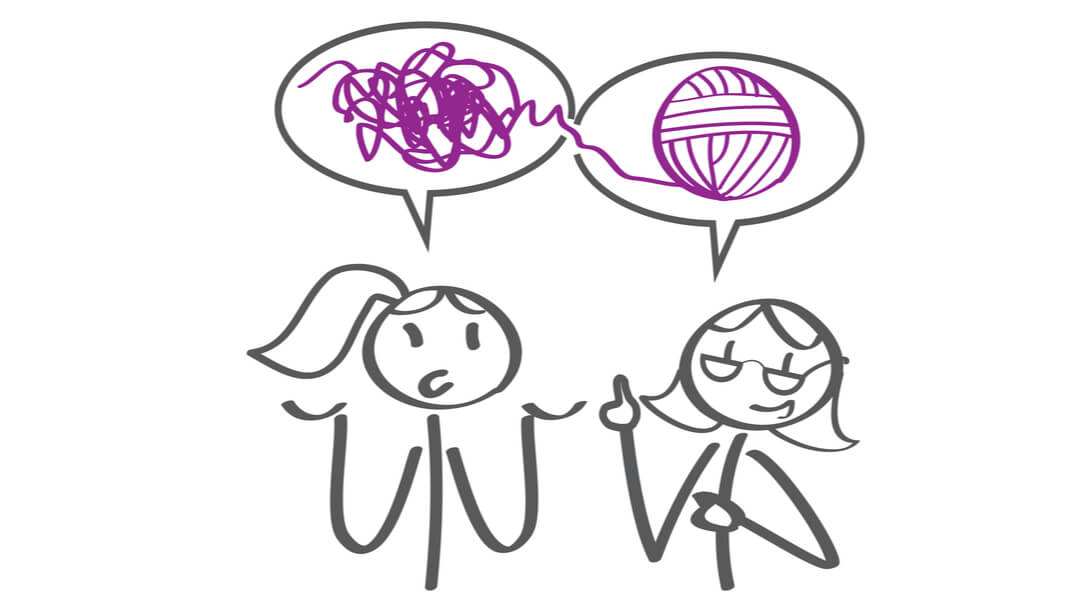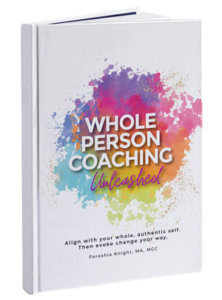Your phone rings. You recognize the Caller ID and send the call to voicemail. Minutes later, your screen fills with “urgent” text messages. It’s “that” friend or family member. The one who always needs to talk to you “right now.”
You know the feeling. It’s never fun. You love them. Yet you hate the way this “conversation” makes you feel and, worse, how it makes you feel about someone you care about.
Ready to change that?
There are a myriad of situations within which this exact experience can arise. So please follow along as I offer one that is familiar to many of us as an example. The lesson is far more universal than the context I’m about to share.
A friend or loved one comes to you for help with a relationship in which someone is treating them unfairly or unkindly. This relationship, from your point of view, truly does not serve them.
How do you respond? Are you curiously interested in hearing all the details first? Or are you ready to immediately jump in and help (like most of us)? Perhaps you’ve given up trying? Don’t worry: it’s not too late to change this dynamic.
If their situation feels familiar to you, take notice.
Could their story have prompted you to recall a similar situation in your own life? It’s quite common for our mind to unconsciously guide us back into our own experiences. As we recall our memories, something far more subjective than straightforward recollection occurs. We are set adrift on a sea of emotion.
A part of you grows furious at how your friend is being treated. As a result, another part of you becomes invested in helping them find a solution.
It’s so painful to watch someone you care about struggle, especially when it reminds you of your struggles. You can’t wait to come to their rescue with your best advice.
Your own experience guides your every step as you deliver wisdom you believe to be invaluable and flawless. You know you’re right. Yet your wisdom seems discounted and almost ignored. Despite your best efforts to wake them up to their reality, nothing changes.
You watch them spiral deeper into their problem, increasing your feelings of frustration and disappointment as well.
Let’s look at what might really be preventing the change you seek from happening.
Why can’t they hear you?
Your friend is stuck in a perspective that makes sense to them, even though it may be utterly perplexing to you. Guided by their inner narrator, they are locked in this story because it helps them make meaning of their experience with the other person. It’s also likely giving them varying levels of confidence, clarity, meaning, security, and probably quite a bit more.
Here are a couple examples I’ve heard over the years as a coach and a friend:
- Fear of being alone: Some people believe they will be alone for the rest of their life. This one person is their only chance, so they’ll do anything to sustain the relationship for fear of “loneliness.”
- Blinded by the light: Determined to view their situation optimistically, some people keep their attention locked onto what is working. Forgotten (or ignored) is the fact that another person inconsistently meets their needs and frequently leaves them questioning the relationship and themselves. Instead, these individuals cling onto life’s rosier moments and overlook a consistent pattern of letdowns and hurt feelings.
There is no limit to the stories we can create to explain who other people are and why things are the way they are.
Our story is the culmination of beliefs we hold about ourselves, others, and the world around us. When this story is inaccurate or outdated, it blinds us from seeing what is real and responding to our needs in useful ways.
We all have our stories
While your friend or family member may be stuck, you too can get caught in your own story. Your story is informed by your experience with a similar situation. Like your friend or family member, this story helps you make sense of the situation from your point of view.
Your experience creates a lens through which you hear your friend’s struggle. Yet in the process, it also limits you from seeing what else might be true in this situation. Worse still, your story filters and colors your ability to champion the one thing you want most from them: positive change.
One of the most accurate metaphors for this state is emotional glue. Needless to say, it can get sticky, constricting our ability to see beyond the obvious.
How to create a breakthrough
As a professionally trained coach, your own experience is certainly part of your coaching toolkit. Yet experience alone isn’t enough to create change in most people. However, you can leverage your experience in conjunction with that of your client to cultivate a “holistic or systemic viewpoint.”
Change happens when someone can view themselves, their situation, and others from a fresh perspective. Seeing something differently is often the first step to responding differently.
View your client and their situation from multiple perspectives: yours, theirs, and a yet to be discovered perspective. This undiscovered middle path is often the key to true transformation. It’s also the jumping off point for enlivened conversations and great friendships too!
But how do you shift beyond the point of view that you and your client are holding?
Step into the present moment and manage your own emotions
If you are like many of us, your capacity to hold a neutral perspective and remain open to what else might be true becomes limited when emotions are at play.
Emotions are a natural response and continuously threaten to clog our ability to invite change. This is especially true when you’re reacting to the other person’s story or what it has brought up inside of you and your own life.
Take control of your emotional landscape by becoming present to your needs and those of others. With a neutral mindset, you can then ask questions and be truly receptive to the answers.
Managing emotions and using curiosity to solve other people’s problems are critical steps toward creating the change you want for others.
Ask yourself: What do I need to be present with this person?
It might seem obvious, but it never hurts to pause and ask yourself, “Is now the right time to have this conversation?” Then if you find yourself feeling frustrated with the other person, or anything else in your life at that moment, gently ask if you can schedule a time for you to be fully present with them later. This creates space for you to show up at your best.
It’s a choice, and an option only you can exercise.
What does my person really need?
Hint: it’s probably not what it appears to be on the surface. They might be caught in a drama that doesn’t make sense. Yet something is sustaining their interest in being involved in that drama.
What are they getting out of being in this situation? How does it serve them? Recognizing when we are caught in our own story is NOT an easy thing to do. But as someone who wants to help, you’ve got an opportunity to shift from responding to the problem, to inviting a solution to their pain.
In Whole Person Coaching, we talk a lot about the invisible influencers that drive people to do what they do. Sometimes we develop coping strategies such as dead-end jobs or unfulfilling and even destructive relationships. Hard to believe, but true. For example: it’s easier to take part in something that doesn’t serve us than to feel lonely.
Who is the best person to help this person?
Hard truth: sometimes it’s not you. This is especially the case when you’re not feeling equipped to have a different kind of conversation with them.
To answer the question, sometimes the best way to help others is to refer them to someone who can have a different conversation with them. At times, we need a “stranger” or someone who doesn’t have a deep, long-term connection with our friends and family to break through and awaken us to our present situation.
As coaches, that’s usually where we enter the story. We are that third-party neutral companion that help others see what they can’t.
Summary
Participating in circular conversations that never move a problem forward are destructive to the relationships we hold with others. Whenever possible, only engage with these individuals when you’re feeling present and capable of maintaining an emotionally neutral perspective.
Though your experience is highly valuable, trying to impose your past solution onto someone else will never work. Even if you achieve results in the short term, the changes will not be sustainable because they did not originate holistically from within your friend or family member. You’ll only face this problem again down the road.
Finally, recognize when you are not the best one to offer advice to a friend or family member. Then recommend they speak to a neutral individual who can show up without the burden of a shared past.
As a professional coach, you learn how to become a highly effective communicator. But these skills aren’t just for coaches. In fact, many students point to these as critical life skills, yet they aren’t taught anywhere except in coaching programs and universities. I truly hope this example helps you think about how else you might champion change with those you care about most.
Please share your questions or comments below!



